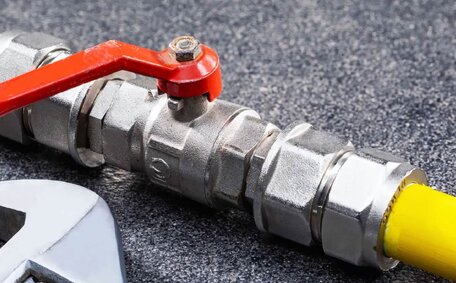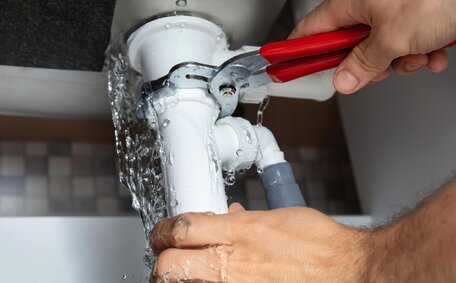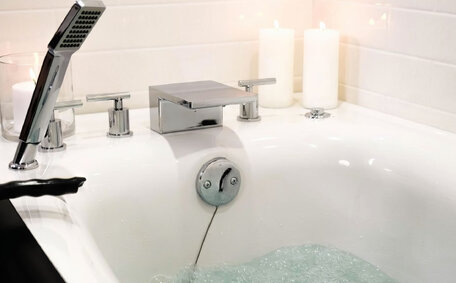Introduction to Checking for Gas Leaks
Having gas appliances in your Mosman home provides comfort and convenience, but gas leaks can also lead to dangerous outcomes. As your trusted local Mosman plumber, I want to provide some guidance around detecting and preventing hazardous gas leaks.
It’s crucial that all gas lines and appliances are thoroughly inspected for leaks on a regular basis. Even small leaks over time can cause health issues or lead to fires and explosions. My team at Mosman Plumbing has the expertise to assist with all gas fitting inspections, repairs and installations.
In this article I’ll cover the tell-tale signs of a gas leak to look out for, the dangers leaks pose, tips on prevention, and when to call in the professionals. Having the right knowledge keeps your family safe and avoids costly damages down the track.
Recognizing Warning Signs of a Gas Leak
There are a few key warning signs that indicate a potential gas leak in your home or business:
- A rotten egg odour - Natural gas has an additive that gives off a potent rotten egg smell when gas escapes, so this odour is one of the most telling signs of a leak.
- Hissing or whistling sounds - Gas escaping from pipes or appliances often causes a hissing or high-pitched whistling noise.
- Dead plants or grass in otherwise lush areas - Escaping gas can kill vegetation.
- Flames coming out of non-burner parts of your stove or oven - This indicates a gas leak in the appliance.
- Condensation or dirt build-up on a pipe - This may signal a small leak.
- Unusually high gas bills - Something more than faulty appliances may be raising your bills.
Gas leaks are hazardous and need immediate attention. If you notice any of these warning signs, evacuate the area, avoid using anything that may spark ignition, and call a professional plumber straight away.
Visually Checking Gas Appliances
A visual inspection of your gas appliances, fittings, metres and regulators can also identify leaks. Look closely at joints and connections for any discolouration on pipes, which may indicate corrosion and potential leaks. Examine the pipes leading into and out of your gas metre for concerning discolouration as well.
Check gas appliances like stoves, ovens, heaters and hot water systems thoroughly.
Look for any discoloured metal joints or fittings, damaged or corroded pipes, or scorch/burn marks in unusual places. Watch the flame colours and patterns - they should burn evenly with a blue colour with no yellow tipping. Yellow flames, wavering flames, flames coming out of non-burner parts or the appliance failing to ignite can all signal a gas leak.
Also inspect the rubber gas line leading into each appliance. Cracking or deterioration can cause gas to escape. Having a comprehensive understanding of what your gas appliances look like in proper working order makes it easier to notice when something is amiss.
If you spot any of these visual warnings, turn off the gas at the mains and contact a licenced gas fitter to inspect, repair and pressure test. Never delay when it comes to gas leaks.
Using Your Nose to Detect Gas Leaks
One of the most reliable ways to detect a natural gas leak is to use your nose. Natural gas distributors add a chemical called mercaptan that gives gas a strong, unpleasant rotten egg odour so that leaks can be more easily sniffed out.
If you ever notice even a faint rotten egg smell in or around your home or business, evacuate immediately and call the fire department and a professional plumber. Don’t try turning appliances on or off or operating any electrical switches. Any spark could ignite the gas and cause an explosion.
Conduct periodic 'sniff tests’ around gas appliances and pipe connections to be alert for leaks before they become large or hazardous. Trust your nose - if you ever detect a sulphurous rotten egg scent, assume there is a dangerous leak until proven otherwise.
Listening for Hissing or Whistling
the rotten egg smell, listening for sounds can also alert you to a potential gas leak. Escaping gas often causes a distinct hissing or high-pitched whistling sound.
Be attentive when operating valves on gas appliances, regulators, and metres. If you hear hissing near connections or pipes as gas escapes, it indicates an immediate leak. The loudness of the sound typically correlates to the size of the leak.
Small leaks may produce faint hissing, while larger, more hazardous leaks result in louder whistling. If you detect any hissing or whistling around gas fittings, turn off the main gas supply line and make an urgent call to the gas company and a professional plumber.
Conduct periodic leak checks by turning appliances on and off, and listening closely for any unusual sounds which signal gas escape. Trust your ears - unexplained hissing or whistling sounds demand further inspection from a qualified technician.
Conducting a Soapy Water Test
One of the most effective DIY methods for checking gas fittings and pipes for leaks is conducting a soapy water test.
You’ll need a spray bottle, pipe brushes, rags, a wrench to turn off valves, and dish soap and water.
Make sure to shut off gas valves before starting. Mix the dish soap with water until sudsy. Then spray or brush soapy water liberally on pipes, joints, valves and appliances.
Watch for growing bubbles, which indicate escaping gas. Concentrate on joints and connections.
Compare areas to differentiate between normal moisture bubbling and actual gas leaks. If any leak is detected, wipe the area clean and immediately shut off main gas valves. Compare areas to differentiate between normal moisture bubbling and actual gas leaks.
Repeat this test regularly, such as yearly or after earthquakes, to detect potential leaks early. Turn valves on and off during tests for a thorough inspection. Trust your eyes during the soapy bubble test - any leaks evident should be addressed promptly by qualified technicians for your safety.
Using Gas Leak Detectors
Specialised gas leak detection tools provide another means of identifying and confirming leaks.
An electronic gas detector can pinpoint even tiny, dangerous leaks that you may not be able to see, hear or smell. Professional plumbers use quality electronic methane detectors and ultrasonic detectors to conduct thorough gas leak inspections.
Portable gas detectors help professionals locate the exact position of gas leaks quickly. They can then diagnose problems and determine if repairs, replacements or other solutions are required.
For ongoing peace of mind, homeowners could also invest in a natural gas alarm or methane detector for additional monitoring between professional checks.
You could likewise install carbon monoxide detectors as a precaution. While CO is odourless, a detector can alert you to its presence if faulty gas appliances are leaking.
Gas leak detectors are not usually DIY devices - the most effective monitoring comes from detectors used by qualified technicians. If your professional inspector confirms a leak with detectors, address it urgently.
When to Call a Professional
As your trusted Mosman plumber, I always recommend calling a licenced professional anytime you suspect a gas leak or discover one through inspecting, sniffing, or leak testing.
Specifically, contact a qualified technician right away if:
- You notice a rotten egg smell anywhere in your home or business
- You hear any hissing or whistling sounds near gas connections
- A gas appliance has yellow tipping, soot marks, or abnormal flames
- The soapy bubble test indicates leaks
- You have very high gas bills that signal a leak
- Gas appliances are malfunctioning
- Electronic gas detectors confirm a leak
Our team at Mosman Plumbing has the proper training, experience and equipment to locate leaks, perform repairs, and conduct follow-up leakage testing to ensure all hazards are resolved. If you ever suspect a problem with your gas supply, trust the experts and contact us immediately for inspection and repairs.
We’re here to help keep your home or business safe.
Preventing Gas Leaks
While gas leaks can happen unexpectedly, there are proactive measures you can take to help avoid them:
- Have gas lines, fittings, and appliances inspected annually by a qualified plumber.
- Look for signs of corrosion, cracks, or damage that could cause leaks.
- Replace old or faulty appliances, connectors, piping, and valves.
- Ensure vents and chimneys are clear of debris so gases vent properly.
- Position appliances properly during installation for accessibility.
- Keep the area around gas metres clear for easy monitoring.
- Never use matches or lighters to check for leaks.
- Turn gas off at the mains when away for extended periods.
- Be gentle when turning gas valves on and off to avoid damage.
- Make sure appliances are turned fully off when not in use.
- Ensure proper gas line sizing and pressure regulation.
- Have a qualified technician perform repairs and installations.
Being proactive reduces the chances of both major and minor gas leaks. Contact our Mosman Plumbing team about scheduling inspections and repairs to keep your gas systems safe.
How to Repair a Gas Leak
While some minor gas leaks may be temporarily resolved with DIY methods, we strongly recommend leaving all gas leak repairs to qualified professionals.
Gas systems are complex and leaks can easily worsen if not handled correctly. For your safety, gas leak repairs should only be performed by licenced gas fitters.
If you suspect a leak, turn off the gas at the mains and ventilate the area immediately. Evacuate everyone from the premises and call the fire department and Mosman Plumbing right away.
Our professional team has the proper training and equipment to:
- Accurately locate the leak source with electronic detectors.
- Seal leaks with pipe sealant, replace faulty parts.
- Pressure test repairs to validate they are gas-tight.
- Restore safe appliance and gas system operation.
With the expertise to correctly diagnose issues and perform repairs up to industry codes, you can trust our Mosman Plumbing technicians to resolve gas leaks and prevent further hazards.
Don’t take risks - any sign of a gas leak warrants an urgent call to the professionals. Contact our Mosman Plumbing team for responsive leak repair service that keeps your home or business safe.






